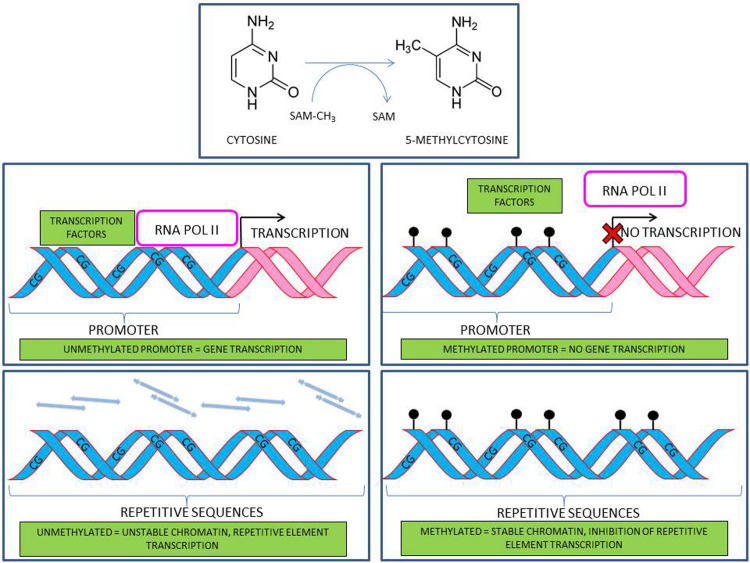Figure 2.
DNA methylation implies the addition of a methyl group to the fifth carbon of the cytosine DNA base, giving rise to a 5-methyl-cytosine. In differentiated cells, only cytosine followed by a guanine can be efficiently methylated by specific enzymes, called DNA methyltransferase. All the known DNA methyltransferases use S-adenosyl methionine (SAM) as the methyl donor. DNA methylation occurring in gene promoters can directly alter gene expression, by inhibiting the access to DNA of the transcriptional machinery function. This methylation is often referred as “gene-specific methylation”. Methylation taking place in repetitive transposable elements (e.g. Alu, LINE-1, HERVs, etc.) can compact the chromatin structure and therefore increase DNA resistance to toxicants

